A handmade tale: A photo essay of the women weavers of Afghanistan
Date:
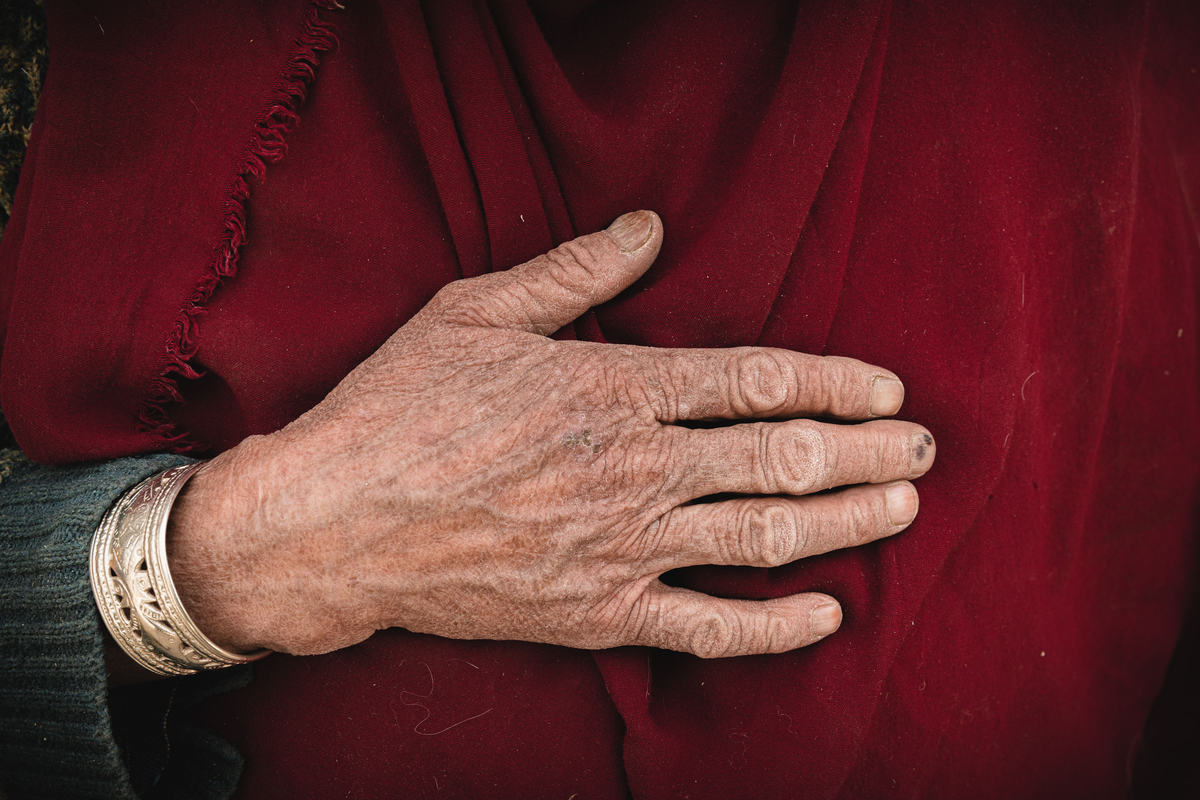
Carpets made in Afghanistan are renowned globally for their quality, beauty and craft-personship. Between 1.2 million and 1.5 million Afghans rely on the sector for their income, and according to the World Bank, women make up nearly 90 per cent of those employed in the weaving and wool-spinning sub-sectors of the industry.
Holding unique cultural significance, women take to the craft to preserve traditional techniques and earn an income, often as the sole breadwinners in their family.
Using natural materials like wool, silk and cotton on wooden or metal looms, most carpets are made at home prior to being shipped to intermediary brokers who sell them abroad and net far more profit than the weavers themselves.
Guardians of a traditional art
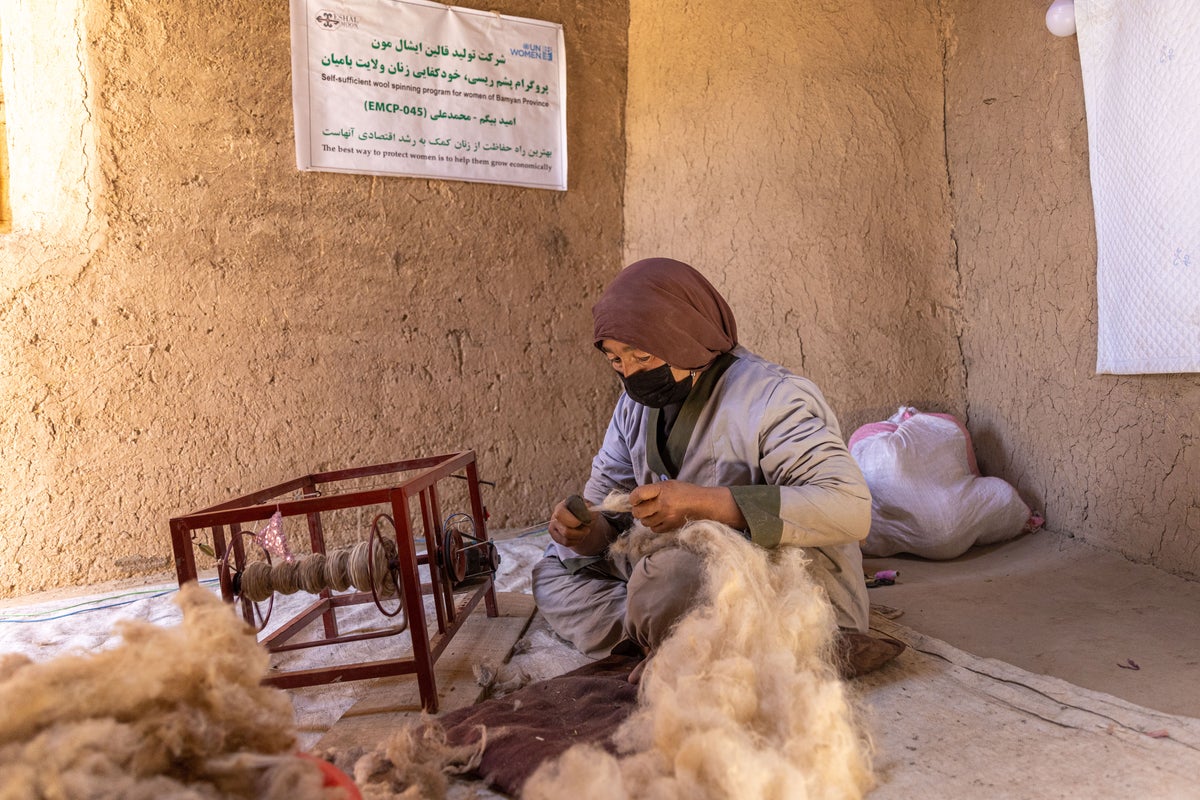
Mahboba has been working for 20 years in the carpet industry, running a company she founded in Nangarhar. Circumventing the constraints most women face in gainfully securing employment, particularly in rural areas, she started home production involving her family and expanded it to create space and opportunities for local women.
“We all know the importance of this work,” says Mahboba. “It provides jobs and benefits poor women and women who are responsible for their family and for feeding their children. Everyone I employ is a businesswoman who has a responsibility to support her family, returned migrants, widows or vulnerable women.”
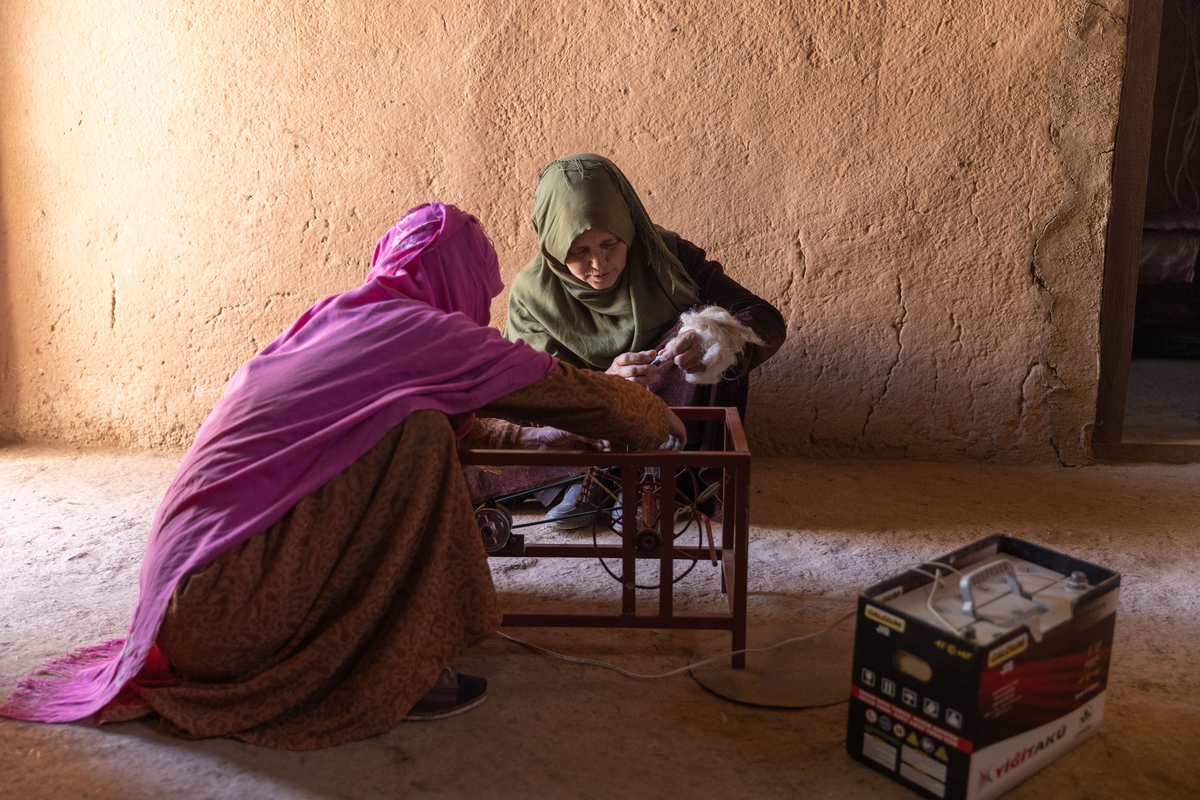
In Afghanistan, women are the guardians of the art of carpet-weaving and wool-spinning. No commute is needed as production frequently takes place at home, where women can balance work with family duties. Hours are flexible and the workload is shared among various women who are members of a family, collective or community.
Artisans usually acquire their skills from mothers, grandmothers and other female relatives through the intergenerational transfer of knowledge, preserving traditional techniques and designs.
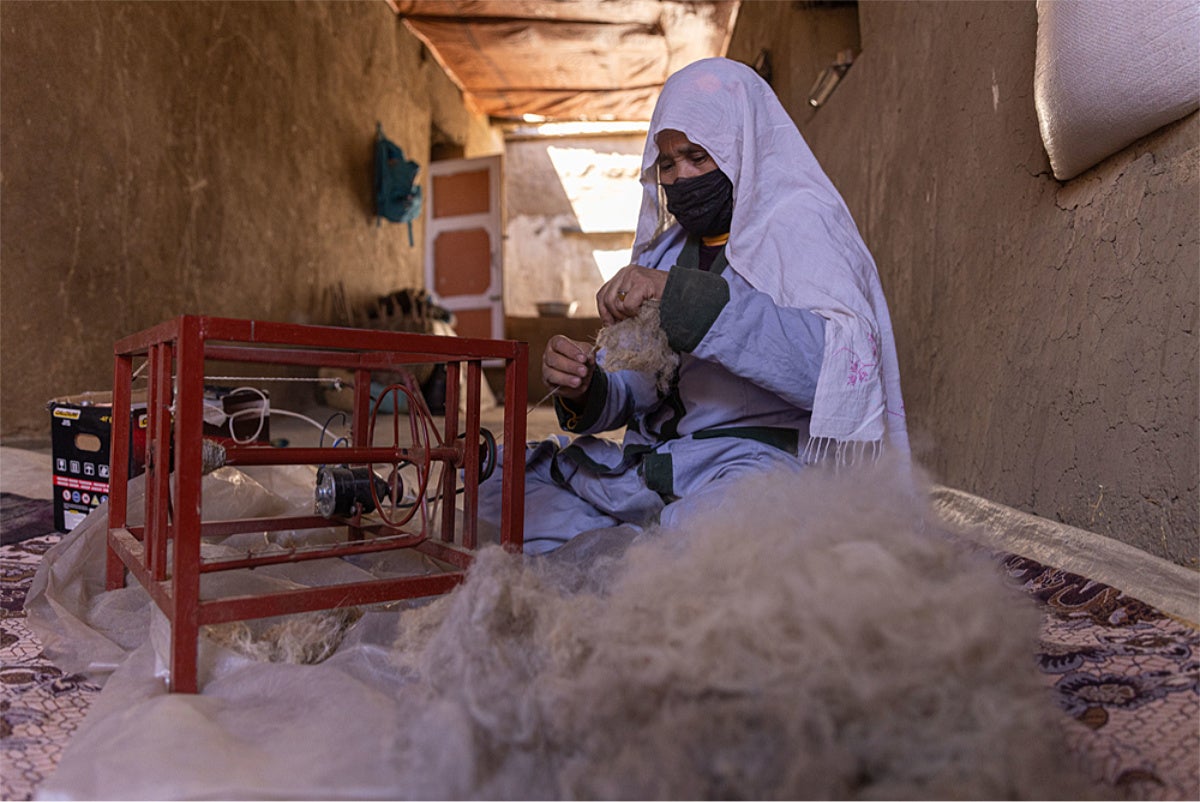
Although weaving is one of the least-profitable activities in the carpet value chain, carpet-making has been a long-standing source of income and empowerment for Afghan women and their communities, especially in rural areas.
“Spinning and rug-making provides support to entire villages by helping women earn money through a traditional, respected occupation,” Mahboba explains.
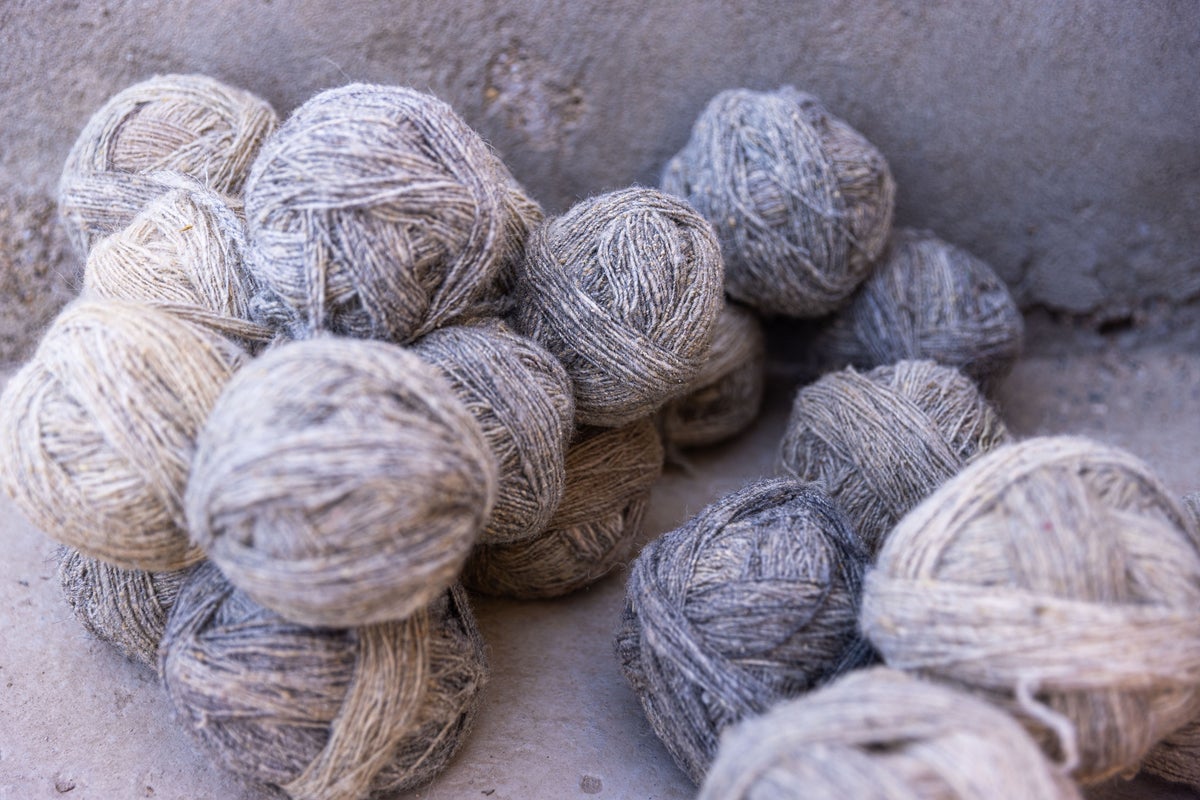
Keep the (spinning) wheel turning
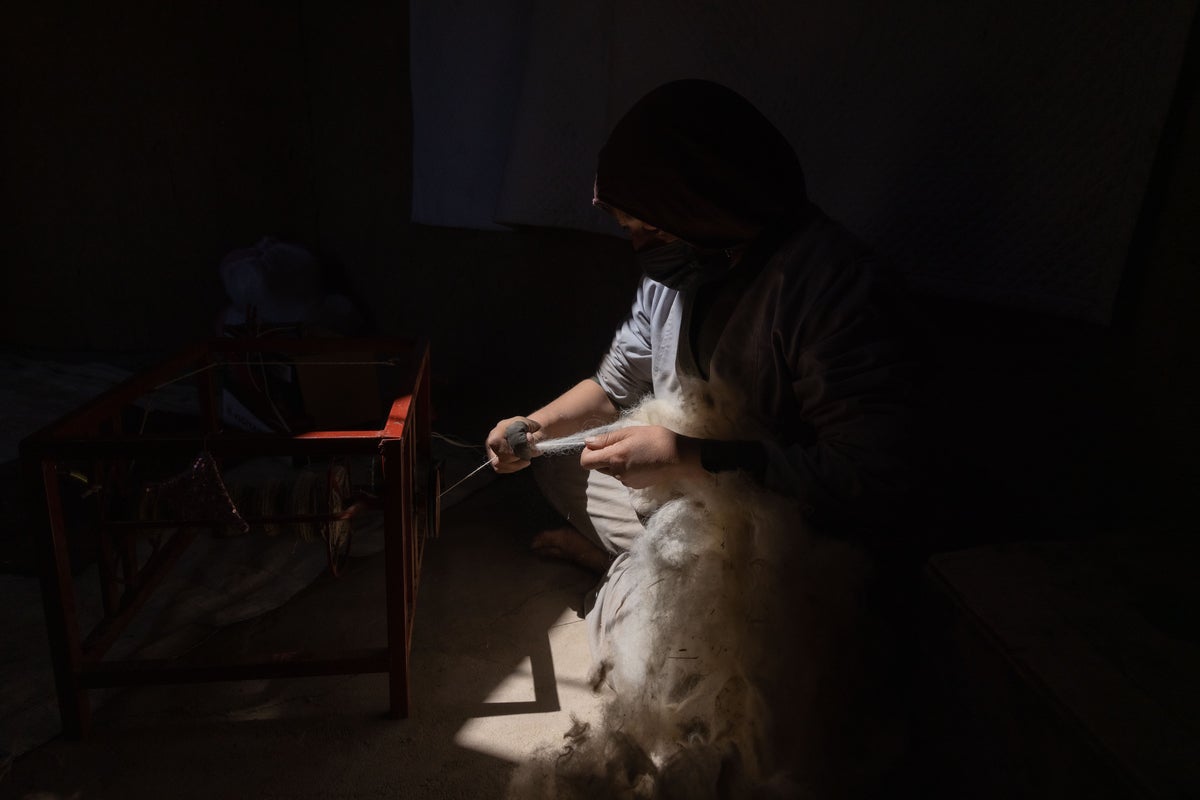
Since before August 2021, UN Women Afghanistan has been actively working with women leaders, activists and organizations to boost women’s economic empowerment in multiple sectors.
In the carpet sector, it has supported local organizations and leaders who understand the dual benefits of women’s involvement in carpet-making. For women, it demonstrates their resilience, creativity and determination to contribute to their families and communities. For the country, women’s active participation contributes to cultural preservation and economic growth.
Following the return of the Taliban and their rapid erasure of women’s rights and opportunities, in 2022 and 2023, UN Women and local partners started supporting 90 women in rural villages in three provinces to improve livelihood opportunities in the weaving and spinning sectors.
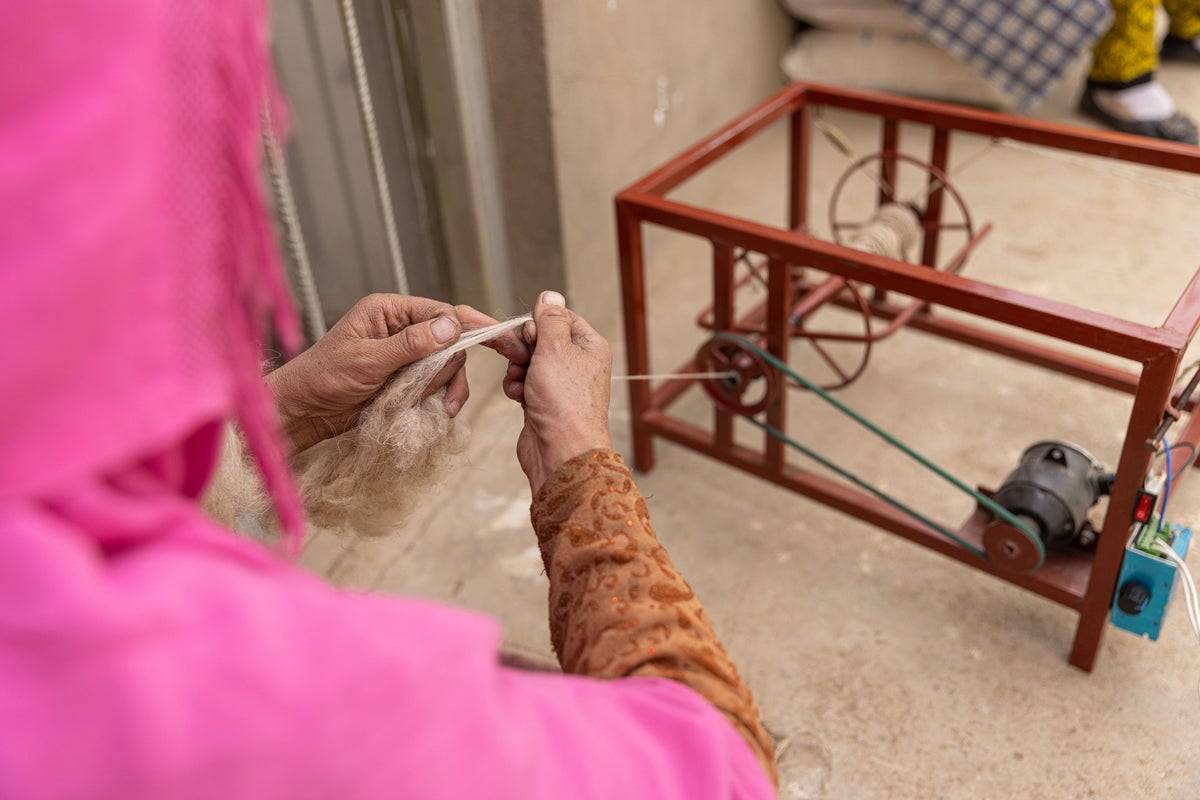
UN Women and close collaborator EMCP identified ways women could increase their production of spun wool, which is sourced by weavers to create carpets. EMCP worked with local authorities and community leaders on finding suitable locations and providing necessary resources for micro-spinning businesses to take off.
Women new to the craft received hands-on training from long-standing weavers and business-owners to ensure that they have the skills and knowledge to produce high-quality wool products.
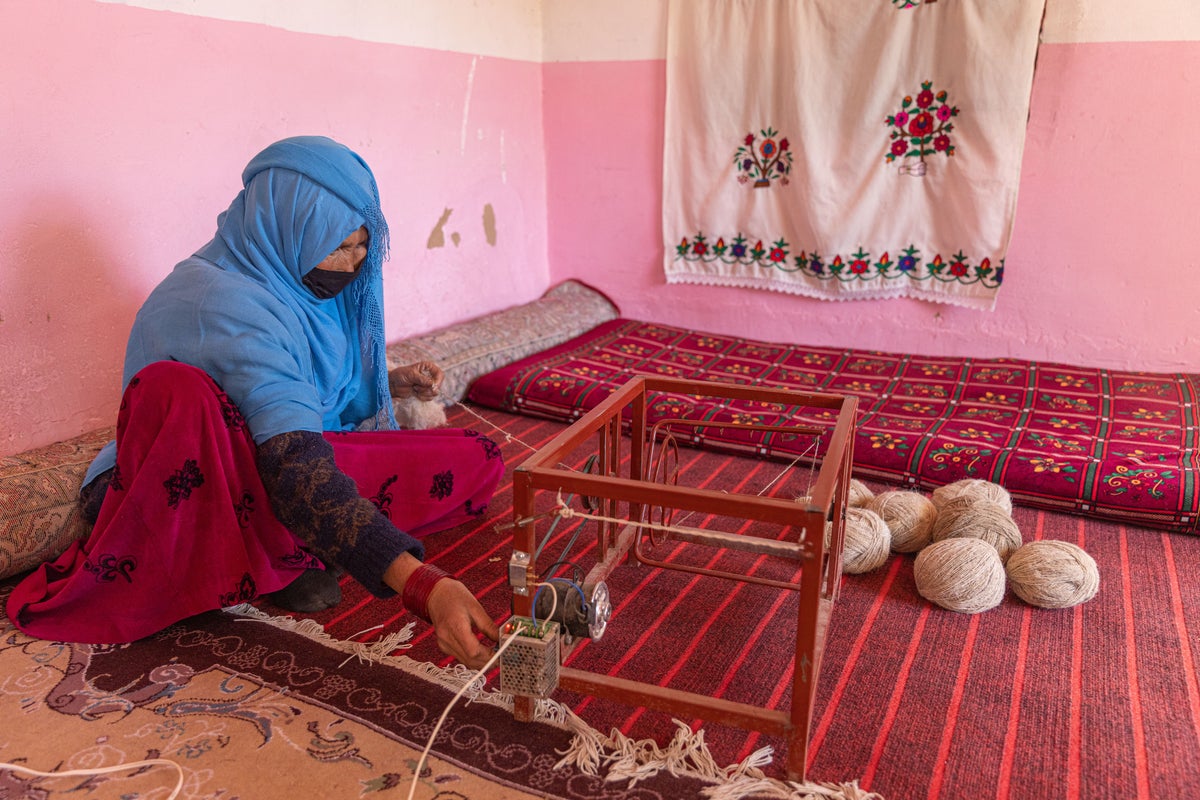
Hamida,* from Faryab Province, in her mid-30s, is a member of a local weaving micro-business who has spun wool by hand for several years. Being able to provide for her family and children has been vital since her husband lost his job in late 2021.
“I like this job because we can make a living and currently that is the only option we women have. There is no other job for us to do,” says Hamida.
Hamida and her colleagues received new machines from UN Women, which they say makes their work easier and improves the quality of the fibre produced.
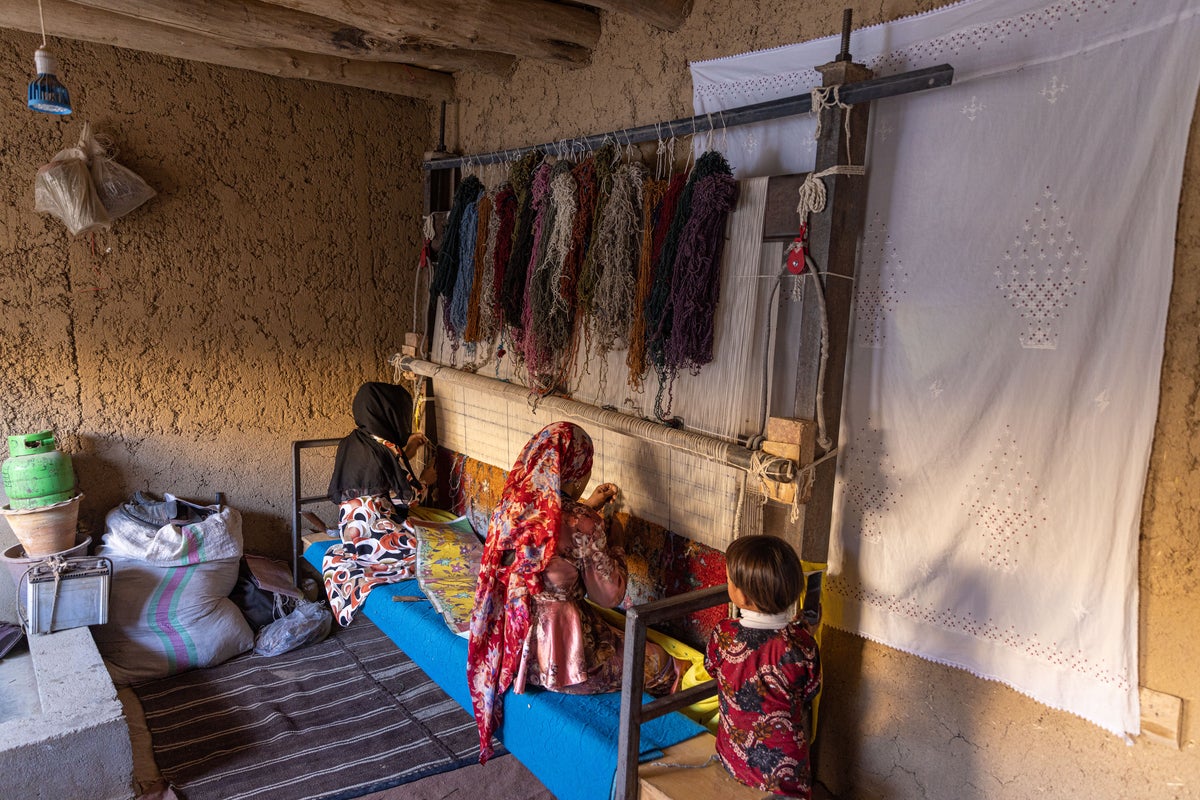
“By hand, I produce half a kilogram of fibre each day, but with a machine, I produce more than one,” Hamida says about the difference in output.
This difference has the capacity to affects tens of thousands of individuals since a woman spinner or weaver earns between 4,000 and 6,000 afghanis a month (worth approximately 50 to 76 US dollars as of September 2023).
“By running their own business, women can reach self-sufficiency and provide jobs for other women,” adds Sarah,* a business-woman and spinner in Balkh Province.
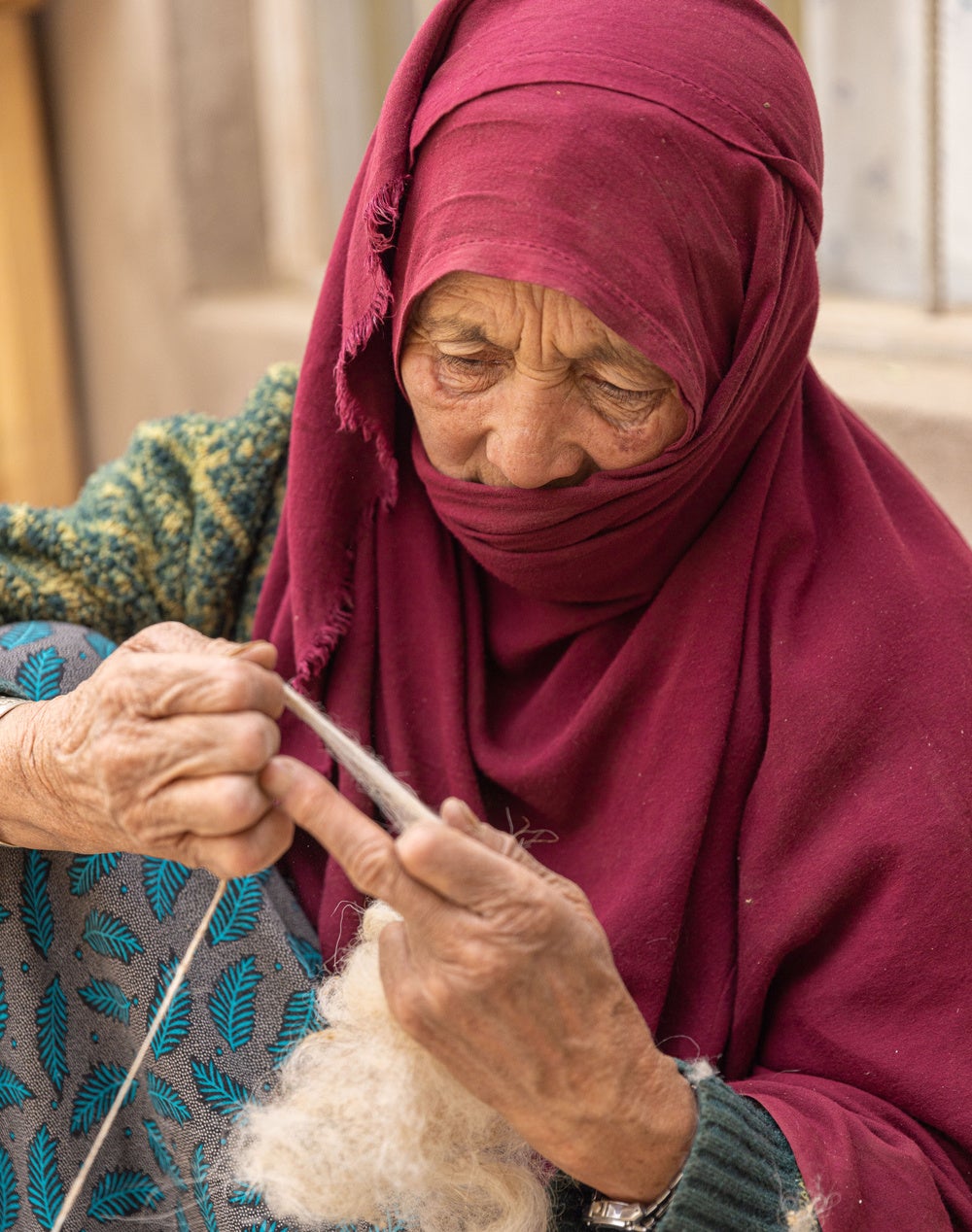
In addition to providing employment opportunities, micro-businesses in the carpet sector contribute to women’s personal growth and expanding the wider wool-spinning industry.
A team of business professionals who collaborate with UN Women work closely with micro-businesses and collectives to ensure products meet quality and sustainability standards required for sale. They also help the women involved leverage their businesses to forge direct market links, create demand for final products, and expand into adjacent sectors, like tailoring.
The future is in women’s hands
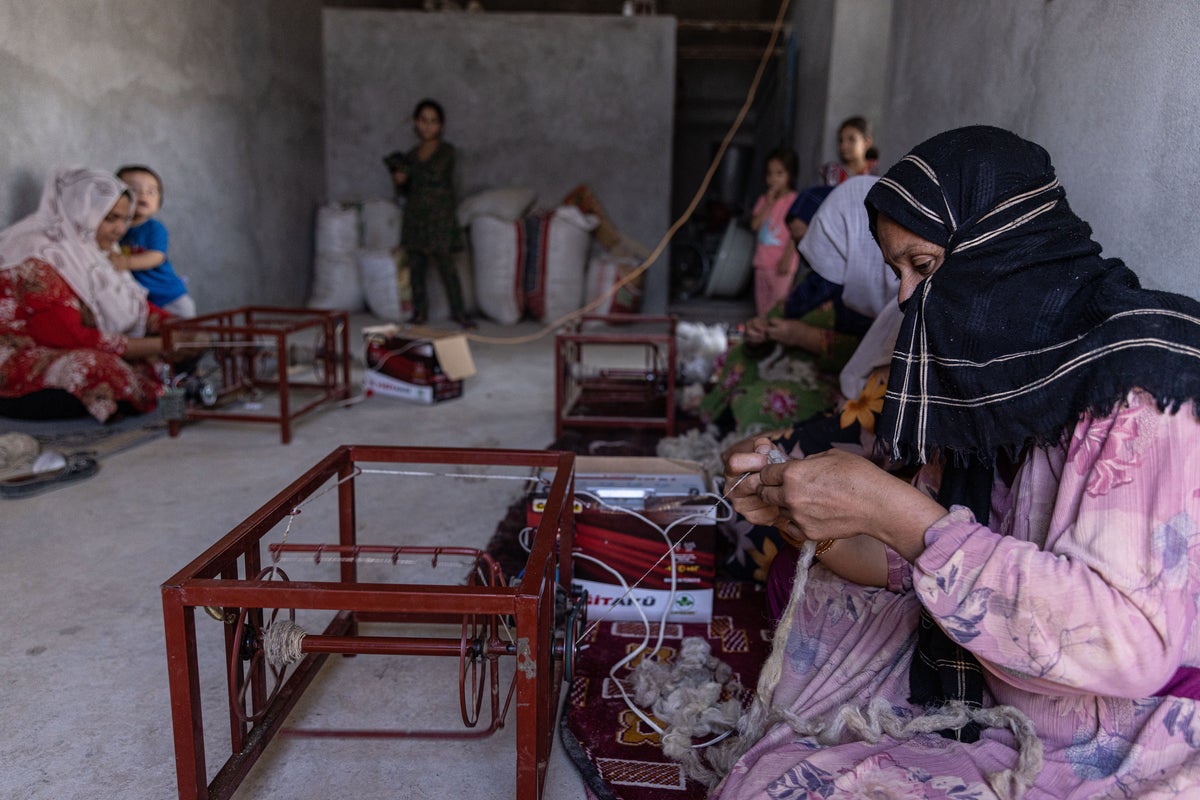
Across the country, women have been joining weaving cooperatives for decades to be part of something bigger: a supportive environment where they can share information and experiences, collaborate on specific projects and collectively access resources.
Zarina,* from Sarpol Province, is a member of a cooperative of 25 women from her local village. In 2015, Hussaini’s crew started a bag-sewing business where, for years, members earned a living wage and the collective grew.
But she says the challenges they faced after the Taliban takeover of Afghanistan in August 2021 were monumental, as week-by-week women were erased from public life.
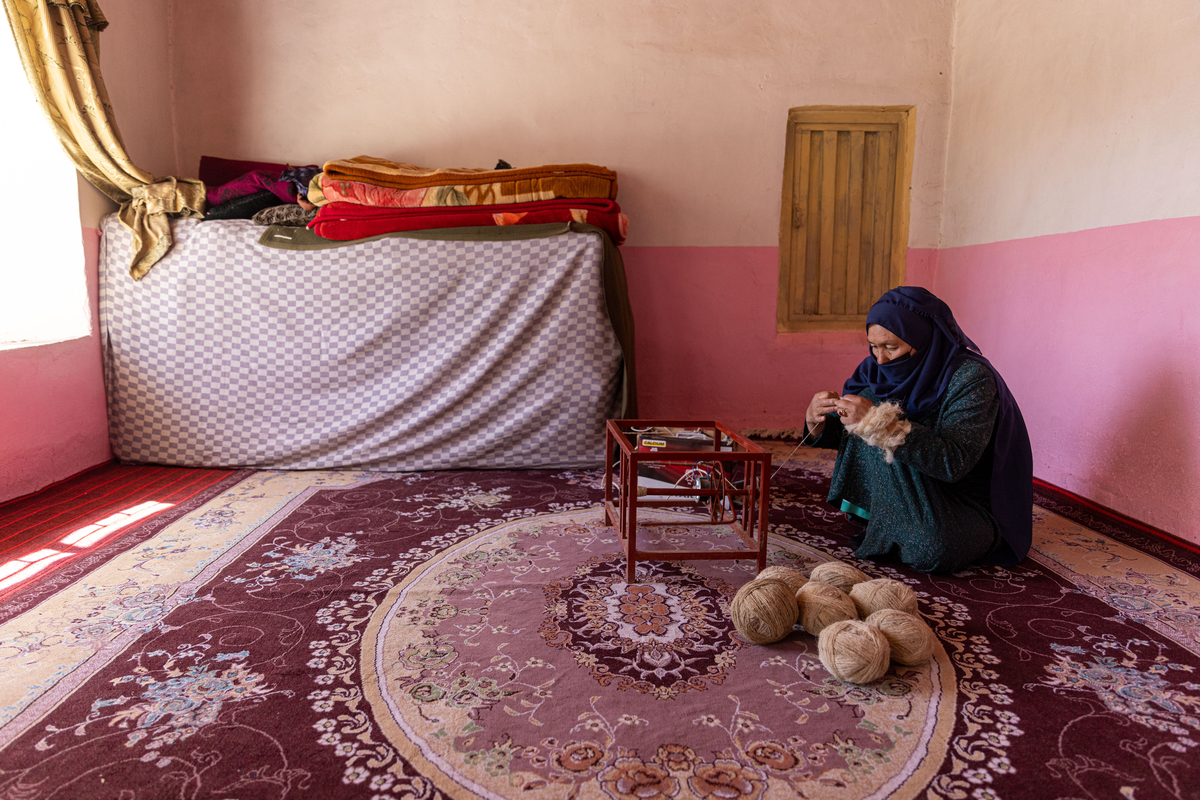
Following months of school closures, decrees forcing women to stay at home, massive unemployment, and a steady rise in mental health issues, the women from Hussaini’s collective eventually decided to ask their mothers to help with the work, for respite and out of necessity. The women sourced spun wool and other textiles to make tapestries, carpets and tablecloths they sold at fairs, markets and to intermediaries.
“We made several items as models and sold them, [earning] a good income,” says Zarina. “Currently, we have 20 employees who make kilims in different and unique designs.”
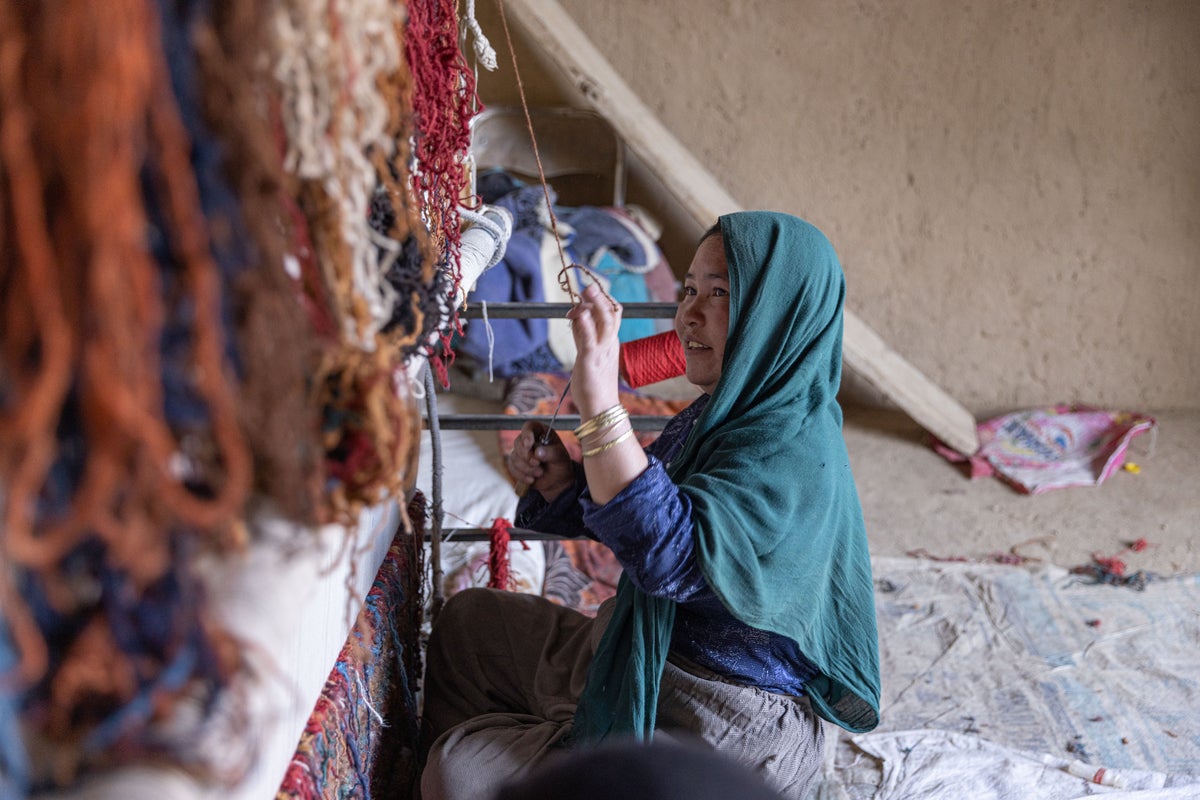
The future of the carpet sector – from weaving and wool-spinning to marketing, sales and distribution – is in the hands of those who have built it: women.
But for the sector to survive, production needs to increase in tandem with the quality of final products and market expansion. To this end, it is essential for women to enjoy their full rights, be involved in all aspects of the value chain, and for more employment opportunities to exist for young women.
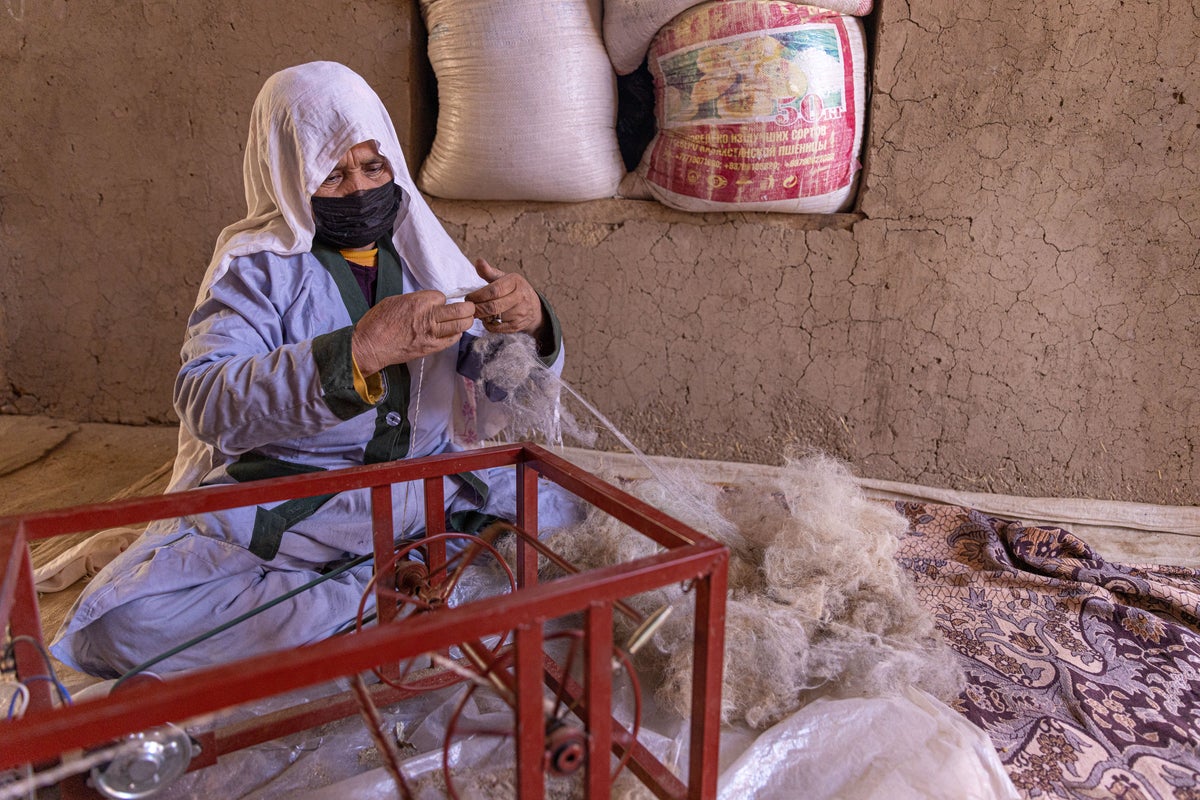
* All women’s names have been changed to protect their identity.
All photos: UN Women/Sayed Habib Bidell